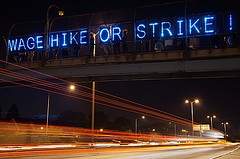
Congratulations to Dr. Sanjay Gupta, Bud Bultman, Roni Selig, Melissa Dunst Lipman, Carl Graf, and Saundra Young on their Hillman 2014 win for the groundbreaking documentary, “Weed: Dr. Sanjay Gupta Reports.” Watch it in full online.
Gupta is the chief medical correspondent for CNN and host of the cable network’s weekend medical affairs program “Sanjay Gupta, M.D.” A practicing neurosurgeon, he reports on health and medical news on various CNN programs and documentaries.
For more than a year, Dr. Gupta and his team travelled the world taking a critical look at the science and research surrounding the use of cannabis. Obtaining numerous exclusive television interviews with experts and families, “Weed” changed the national dialogue on this subject and fostered an unprecedented intersection between world-class science, tremendously needy patients and the ethics surrounding the use of this plant as a medicine.
This is another in a series of profiles of the winners of the 2014 Hillman Prizes. These prizes honor journalism in service of the common good. Follow us on twitter at @sidneyhillman. Use the twitter hashtag #Hillman2014 to find out the latest buzz on the Hillman Prizes, including our upcoming awards ceremony on May 6 at the New York Times Center. Use #Hillman2014 to tag your tweets about the Hillman Prizes. We want to hear from you!









